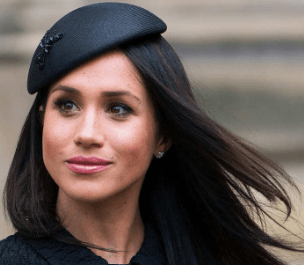*This post of mine is published on CNN.*
Meghan Markle is already breaking with multiple cultural conventions as she prepares to become the first biracial, divorced, famous-in-her-own-right-actress to formally enter the famously traditional British royal family when she marries Prince Harry on Saturday.
And now Kensington Palace has announced that Markle will walk unescorted down the aisle of the chapel nave, after being met at the West Door by a member of the clergy. She will be accompanied in this first part of the wedding procession by her bridesmaids and page boys, and a senior church figure walking ahead.
Prince Charles will then join Markle and walk her down the aisle to the foot of the altar, but he won’t be “giving her away” to Harry. Instead, the father of the groom will “stand back” as Markle approaches Harry.
The major feminist move on Markle’s part is a historic first for a British royal bride, and follows days of speculation in the press about her father’s health and relationship with his daughter. Thomas Markle has confirmed he will not be attending the wedding.
For feminists, weddings, in general, are littered with landmines of gender politics — from the wearing of white to the keeping of names to the asking of permission for someone’s hand. It’s certainly no secret that the tradition of having a father walk his daughter down the aisle on her wedding day and “give” her away is deeply rooted in sexism, basically symbolizing the passing of a woman — the “property” of one man, her father — to the next man, her husband.
Being walked down the aisle by a father does reinforce the perception of women’s economic dependency, but also carries the strong implication that women are incapable of being in control of their own lives.
Markle’s choice, while unprecedented for a royal wedding, reflects a growing trend amongst British women who are increasingly also choosing not to be “given away” by their parents. The BBC cites a recent YouGov poll which shows that 69% of Britons remain in favor of fathers walking their daughters down the aisle, a figure that is down from 82% in 2014.
The very fact that Meghan Markle is giving up her career for marriage and to become a part of a family with such a deep-rooted history of colonialism and racism makes feminists like me face the fact that she is a bride who represents both positive, modernizing change and negative sexist stereotypes. These contradictions are a challenge that many women can understand and relate to, having faced them themselves.
For example, as a Bangladeshi-born Muslim feminist, I threw all the rules out the window when I married my younger, Iranian Muslim (and also feminist) husband. When I found myself planning what I later called my “Big Fat Feminist Wedding,” I had to blend two cultural and religious traditions, one where arranged marriages are the norm, and one (Islam) with two stark interpretations (Sunni and Shia) of proper religious practice.
I had my wedding at the National Museum of Women in the Arts, a neutral but feminist space, and had my brother-in-law read the passage on marriage from the Koran, which emphasizes equality in your union, something many people don’t associate with Muslim unions. I also had an entire table of my then-colleagues from the Feminist Majority Foundation at the wedding. The point is, we did a lot of things not usually done in either my husband’s or my cultural wedding traditions. We pulled the whole thing off, and survived.
Meghan Markle’s marriage isn’t going to undo patriarchy or the legacy of colonialism, but it’s a rich opportunity for all of us to think about ways to put a big dent in both. I like the way reporter Anna North put it for Vox: “In some ways, the royal wedding presents many women with an outsize version of the conflicts they deal with every day — between enjoying traditions and critiquing them, between celebrating small victories and demanding bigger change.” The royal wedding is an occasion to look closely at the tensions between the personal and the political and how they play out in our own lives and the lives of those closest to us.
Markle has said that she does not feel as though she is giving anything up by not acting anymore, but rather views her focus on more humanitarian causes as a change and a new chapter.
And on the eve of her wedding, Meghan Markle has turned all the talk around who will “give her away” on its head by asserting her independence as a modern woman representing herself, and clearly ready to challenge outdated royal practices. It is precisely this attitude that makes Meghan Markle an authentic, relatable, modern bride.
Because, after all, isn’t respecting a woman’s decision, whatever it may be, at the core of what feminism and the modern woman are supposed to be about?
*This post of mine is published on CNN.*
